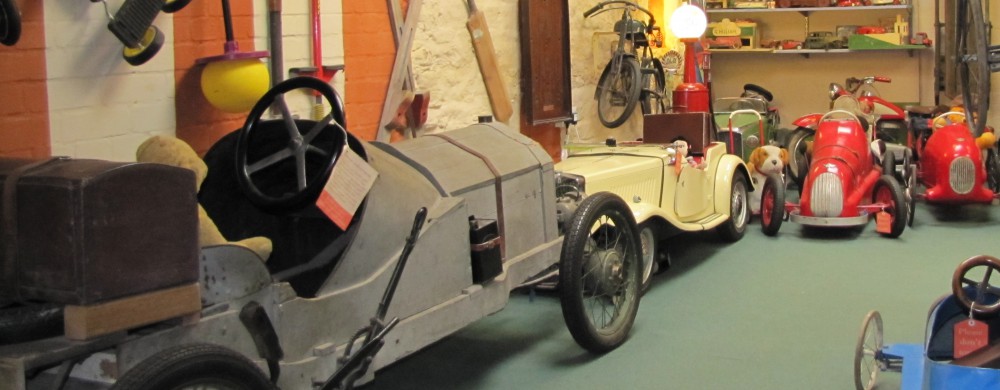The Austin Seven is a racing car! Yet, from what we have posted so far, that seems unlikely.
We have already seen, however, that one hundred years ago, this simple, affordable ‘Baby Austin’ kick-started the development of cars from manufacturers like Jaguar and BMW. So, perhaps we shouldn’t be too surprised to hear that some names in the world of motor racing ‘cut their teeth’ on the Austin Seven.
Our final post on the theme of Austin Sevens in the Cotswold Motoring Museum collection, or cars that are associated with the success of the Austin Seven, brings us to the sportiest of the collection; the Austin Seven Ulster. The 1931 Ulster in the collection is shown below.

Even early in the life of the Austin Seven, once initial issues around the lubrication system of the engine had been addressed, the engine became remarkably reliable at racing speeds. Gordon England, using skills developed from his work on aircraft design, built a lightweight racing body and with that he took second place in the Brooklands 200-mile race in October 1923. He proceeded to set further Brooklands records, lapping the track at an average speed of 80 mph.
To meet public demand, replicas were built by Gordon England, amongst others, and marketed from 1924 as the Brooklands Super Sports. In all, under license from Austin, he went on to produce over 20,000 bodies for the Austin Seven chassis.
Austin, being aware of the sporting success of the ‘specials’, decided to add a factory-built model to their range and hence in July 1928, the car that became known as the Ulster was launched. (The name Ulster came from the success of the car in the 1929 and 1930 Ulster Tourist Trophy races).
Although production of the Austin Seven ceased in 1939, in the post war years many were rebuilt as ‘specials’ including the first racing car built by Bruce McLaren and the first Colin Chapman Lotus. Today, the racing history of the Austin Seven is perpetuated in the 750 Motor Club: 750 being a reference to the capacity of the Austin Seven engine.
